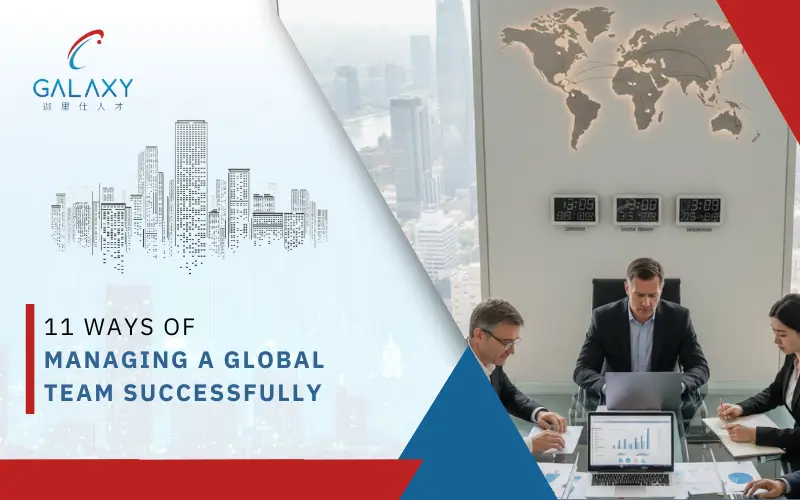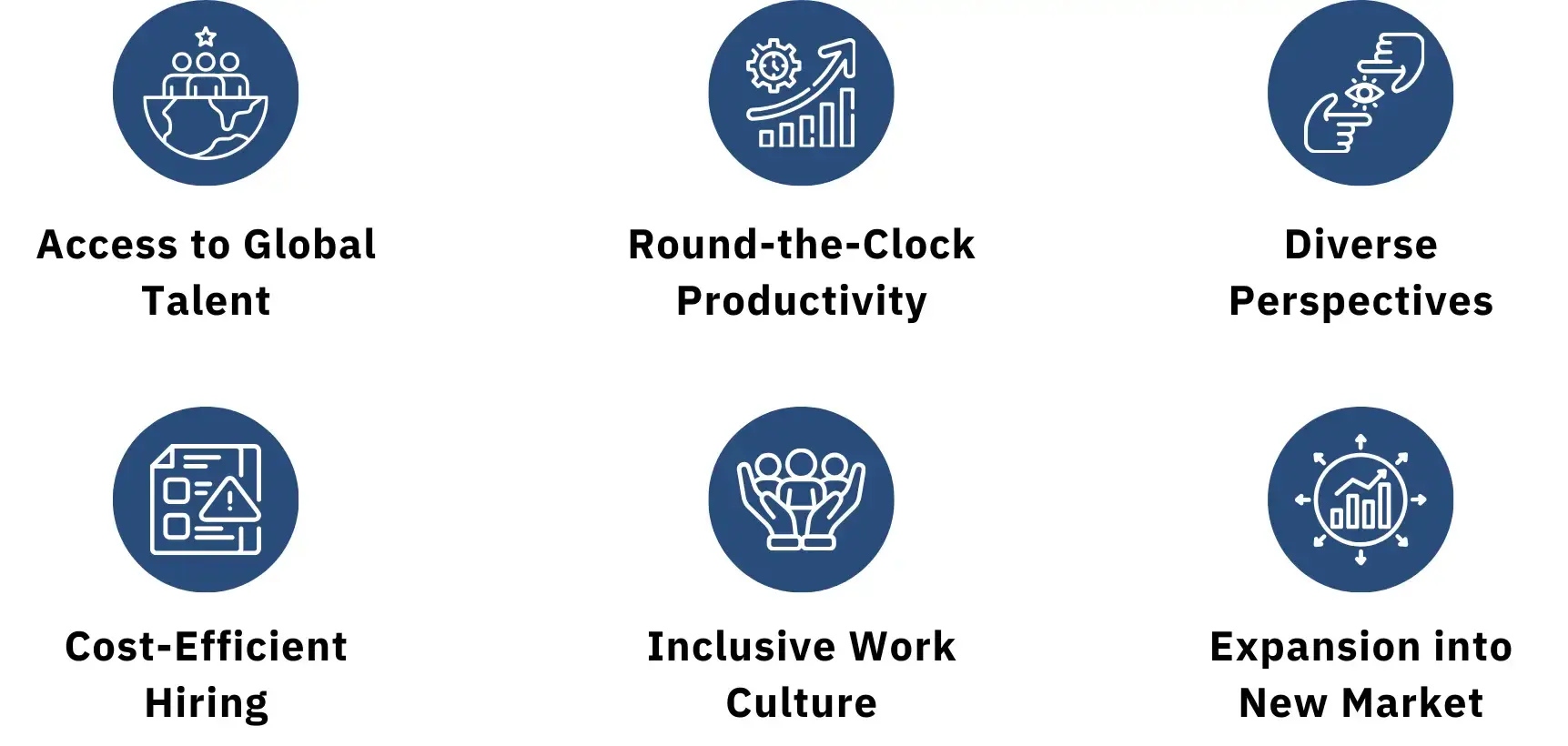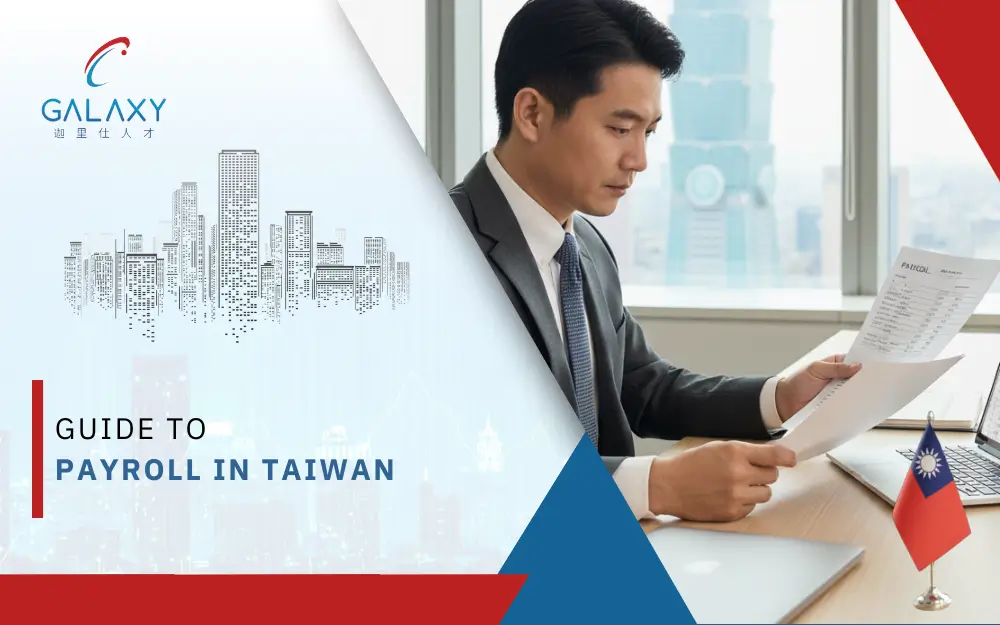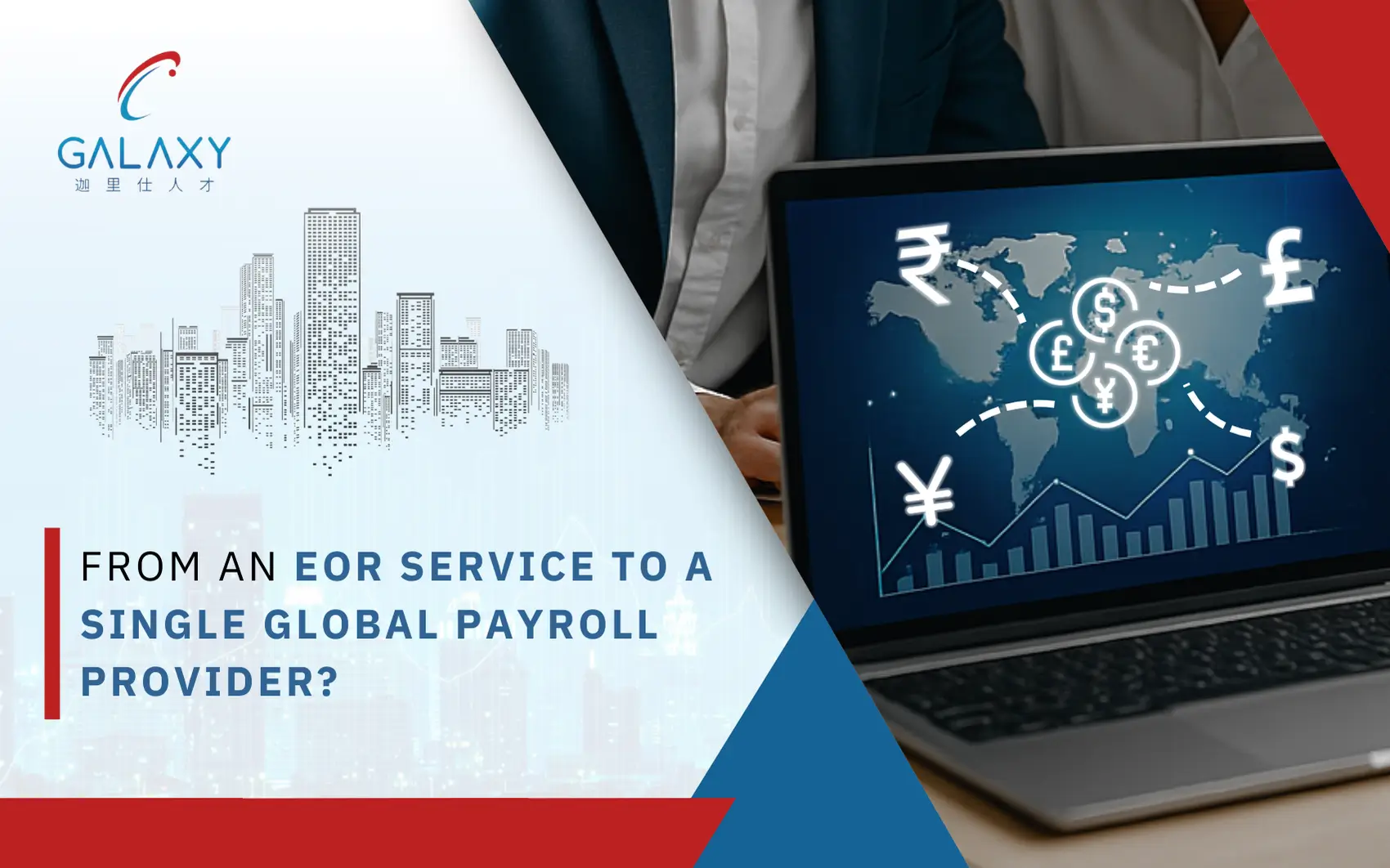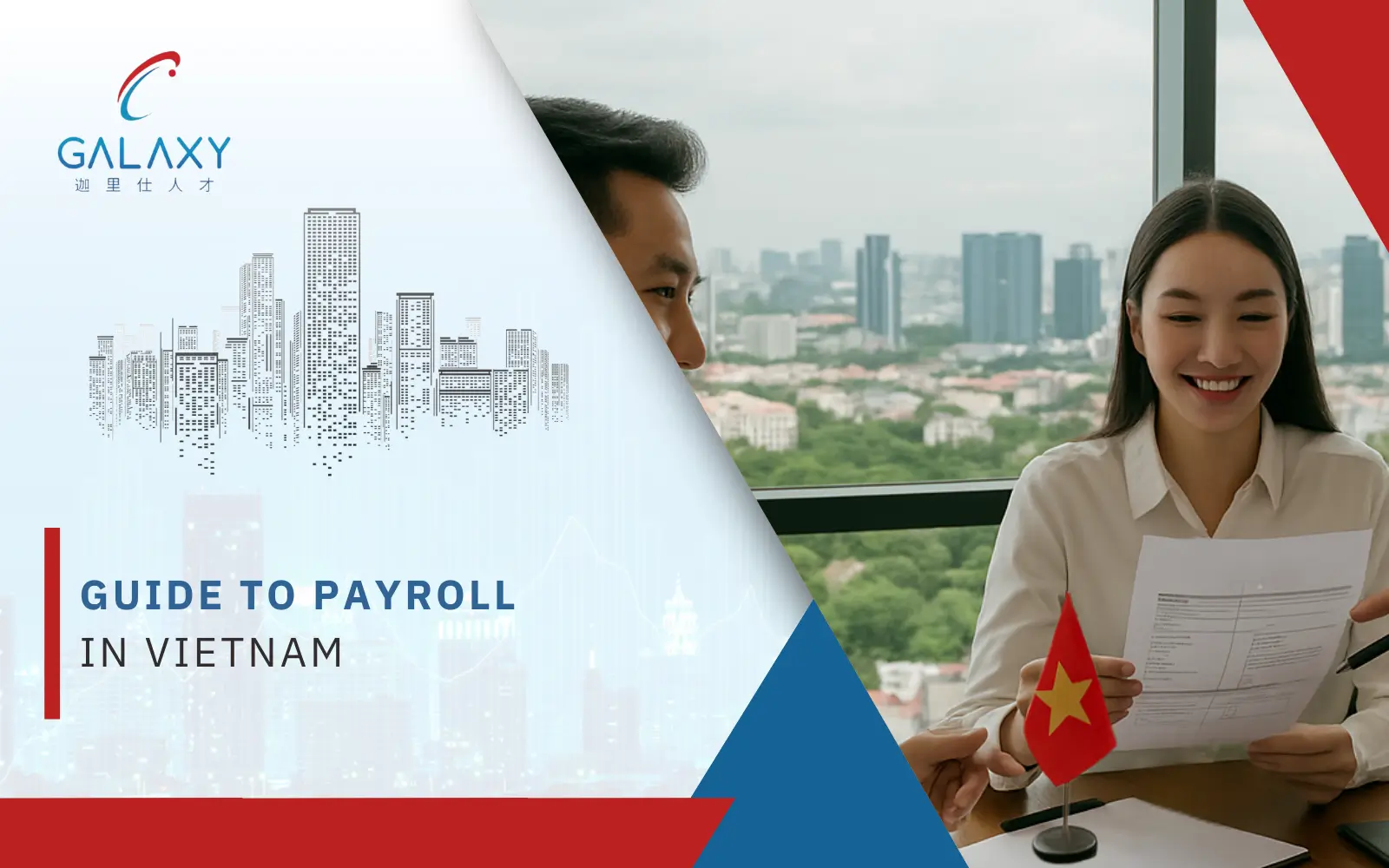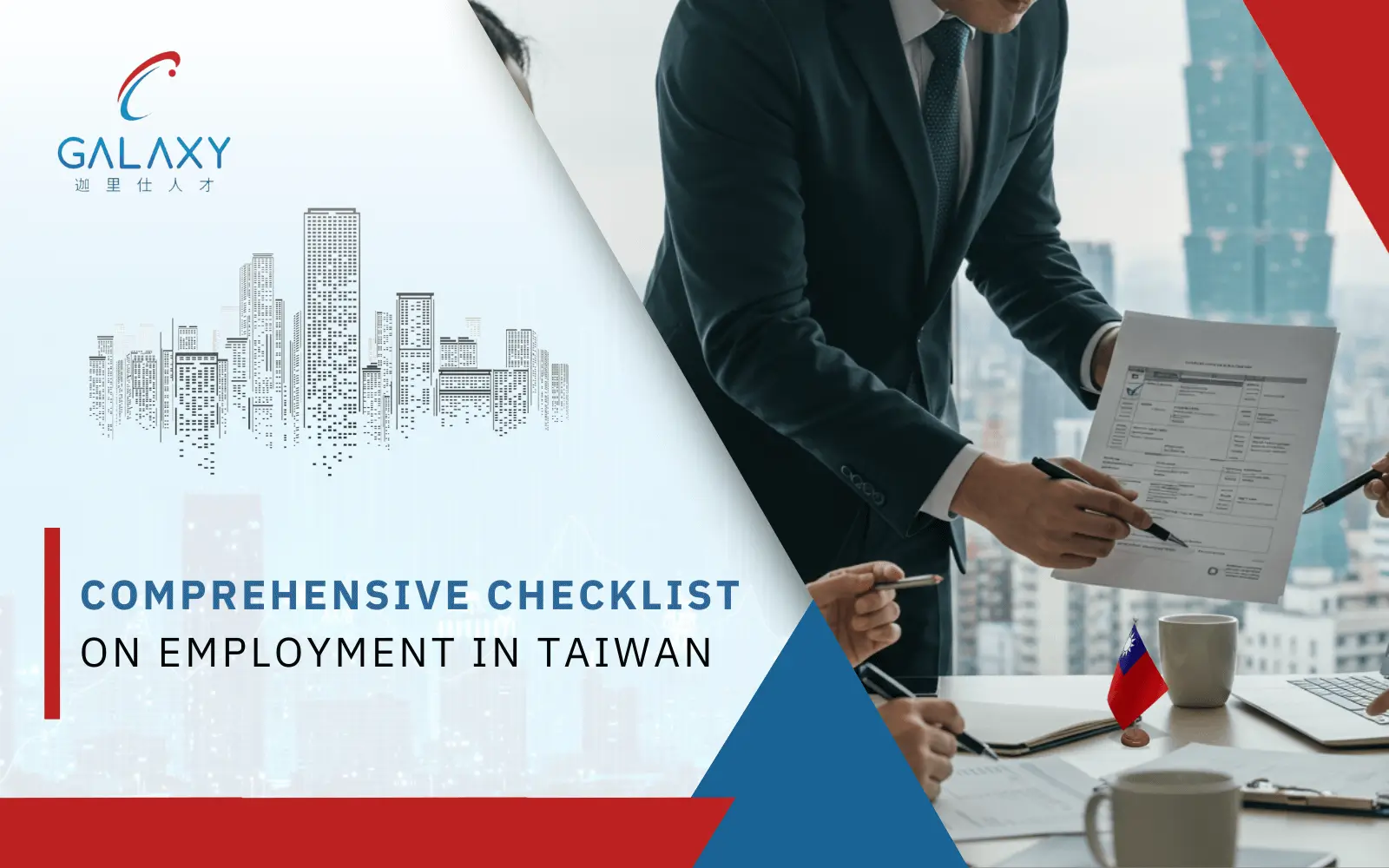China Global Payroll and Tax Information Guide
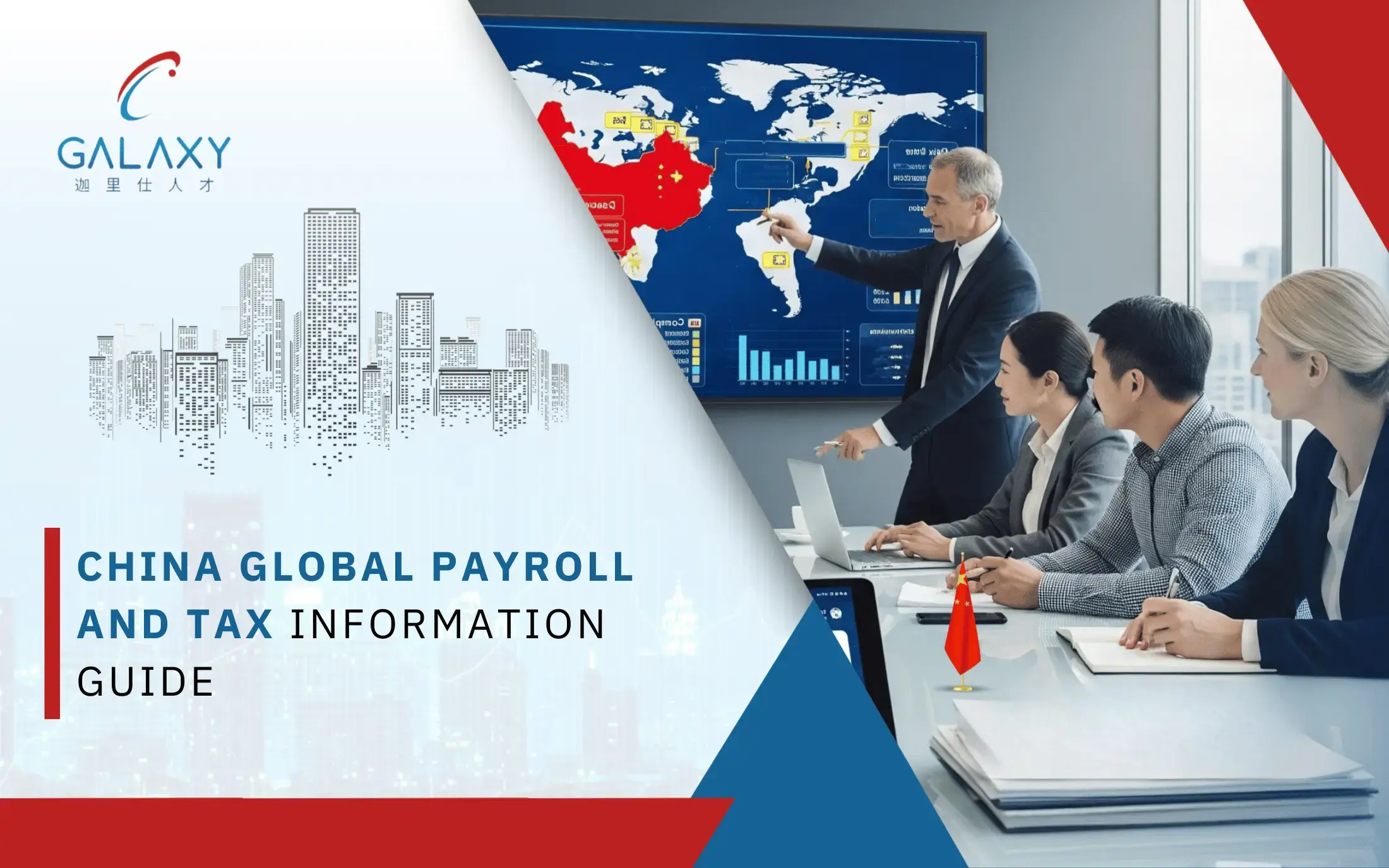
China remains the world’s largest and most dynamic labour market, attracting both multinational corporations and fast-growing SMEs. Payroll management here is far more than wage disbursement; it requires navigating complex labour laws, multi-tiered tax systems, and human resource practices that differ across provinces and industries.
In 2025, rising labour costs, stricter compliance requirements, and the growing use of digital technologies in finance and HR will make payroll management even more demanding, requiring businesses to balance regulatory precision with operational efficiency while respecting local workplace culture.
For companies establishing local entities or managing cross-border teams, accurate and compliant payroll is critical to efficiency, employee trust, and sustainable growth. This guide outlines the essentials of payroll in China, including updates on the minimum wage, employee benefits, tax compliance, cross-border payroll solutions, and the development of a resilient and scalable payroll framework.
Table Of Content
- What Are the Core Components of Payroll in China?
- What Should You Know About Minimum Wage in China 2025?
- Employee Benefits Management in China
- What Are the Key Rules for Employers on Tax in China?
- How Does Tax Compliance in China Affect Payroll Management?
- How Do International HR Services and Employer of Record (EOR) Services Work in China?
- What Are the Best Onboarding Solutions for Cross-Border Payroll in China?
- Conclusion
- Frequently Asked Questions
What Are the Core Components of Payroll in China?
China’s payroll system is built on numerous compulsory elements that all employers must handle with precision and timeliness to avoid non-compliance and to gain workers’ trust. They are not just statutory requirements; they form the pillar of fair and open employment policies.
Individual Income Tax (IIT)
Applied with progressive rates of taxation, income levels, deductibility, and exempt amounts are periodically revised by the authorities. Employers are required to correctly compute and deposit on time to avoid penalties and remain in compliance.
Mandatory Employer Contributions
Social insurance contributions for pension, unemployment, medical, maternity, and work-injury insurance. The schemes are designed to serve employee interests and are an integral part of China’s labour system.
Housing Fund
A compulsory saving plan contributed to by employers and employees in equal amounts, used for employees to purchase housing. Differing rates in various cities necessitate knowledge of local regulations.
Allowances and Bonuses
Transport allowances, meal allowances, and annual bonuses are standard, but must be disclosed as taxable income. The structuring of rewards must be done with care to ensure maximum staff satisfaction and tax efficiency.
Since each of these variables is regulated both nationally and provincially, payroll procedures must be tailored to the particular province or municipality in which its employees are located. For global employers operating in multiple jurisdictions, complexity is even more daunting, making a well-researched and locally compliant payroll strategy essential.
What Should You Know About Core Minimum Wage in China 2025?
China’s 2025 minimum wage remains region-based, with locally set rates that correspond to local living expenses and economic conditions. Tier-1 cities have the highest rates, and other towns continuously adjust their rates to remain competitive. Employers feel the effects of these payroll budget adjustments, overtime rates, and benefits planning—so regular monitoring is imperative for compliance and a strong employer reputation.
| Category | Key Insight |
|---|---|
| Decentralised Wage Setting | China’s minimum wages are set locally—by province, city, or district—so that local living costs and economic conditions can be accommodated. |
| 2025 Wage Range | The lowest monthly wages range from RMB 1,690 to RMB 2,690 (approximately USD 235–370), indicating significant regional disparities. |
| Most Regions Above RMB 2,000 | By mid-2025, almost all the regions will have top-level minimum wages above RMB 2,000, suggesting a general increase in labour costs. |
| Lowest Wage Regions | Several areas made adjustments to their pay scales in the first half of 2025, demonstrating a proactive approach to balancing rewards with changing market circumstances. |
| Frequent Annual Adjustments | To employers, these variations have immediate effects on payroll budgets, overtime compensation, and talent management—rendering local regulatory knowledge critical. |
| Business Impact | For employers, these differences directly influence payroll budgets, overtime rates, and talent planning—making local compliance expertise essential. |
Our quick guide on : Minimum Wage Trends in 2025 : A Comprehensive Global Overview
Employee Benefits Management in China: Key Insights for Employers
Employee benefits management in China is both a compliance necessity and a key talent retention strategy. Companies must strike a balance between the benefits of compliance and competitive advantages to attract and retain top talent.
1. Statutory Benefits:
China’s legal system requires inputs to:
Five Social Insurances – Pension, Medical, Unemployment, Work Injury, Maternity
Housing Provident Fund – For employees’ housing needs
Note: Regional contribution rates and calculation methods differ and are revised annually.
2. Extra Advantages:
Most employers exceed the law by providing:
- Private health insurance
- Transportation allowances
- Subsidised meals
- Regular health screenings.
- Professional development programs
3. Best Practices for Employers:
Stay up to date with national and state laws
Integrate payroll systems to provide accurate and timely contributions.
Balance compliance with appeal by offering benefits that reflect market expectations
Why it matters:
A well-designed benefits strategy will enhance employees’ satisfaction, foster loyalty, and facilitate smooth operations—essential for both domestic and multinational corporations in China.
What Are the Key Rules for Employers on Tax in China?
Corporate Income Tax (CIT):
The standard rate is 25%.
Reduced rates are available for eligible High and New Technology Enterprises (HNTEs) and Small and Low-Profit Enterprises (SLPEs), typically at a rate of 15% or lower.
Qualification depends on strict adherence to and accurate reporting of standards.
Individual Income Tax (IIT):
Employers must calculate and withhold IIT on a monthly basis.
Tax rates range from 3% to 45% based on income.
Annual reconciliation is required for high earners.
The tax treatment for foreign employees is based on their residency status and the length of their stay.
Taxable Benefits:
Non-salary perks such as housing, education, and transport may be partially or fully taxable.
Certain expatriate benefits may be exempt if properly structured and supported with documentation.
Inaccurate reporting can result in fines and compliance risks.
Withholding Tax on Cross-Border Payments:
Royalties, dividends, and service payments to overseas entities are subject to withholding tax, typically ranging from 10% to 20%.
Tax treaty relief may be available if the correct documentation is submitted, including proof of tax residency.
Recordkeeping and Audits:
Employers must retain tax and payroll records for a minimum of 10 years.
All filings must be processed through China’s Golden Tax System.
Compliance includes maintaining Mandarin-language contracts and valid fapiaos.
Companies should be prepared for audits by local tax authorities.
Note: Maintaining full compliance with China’s tax laws is crucial for ensuring operational continuity, protecting reputation, and maintaining financial accuracy. Local expertise is highly recommended for effectively managing these obligations.
How Does Tax Compliance in China Affect Payroll Management?
Payroll and tax management in China demands coordinated oversight across regulatory compliance, cross-border payroll execution, and international tax planning. Each function carries distinct legal obligations and operational considerations. The table below outlines key focus areas businesses must address to ensure full compliance, maintain efficiency, and support sustainable growth in the Chinese market:
| Compliance Focus | Tax Compliance | Cross-Border Payroll | International Tax Strategy |
|---|---|---|---|
| Regulatory Filings | Monthly IIT and statutory contributions must be filed accurately and on time | Salary payments in RMB and foreign currencies require adherence to foreign exchange controls | Entity type (WFOE, JV, Rep Office) determines tax obligations and reporting |
| Documentation Standards | Payroll records must be complete, traceable, and audit-ready | Documentation required for foreign staff exemptions and treaty benefits | Treaty applications demand residency proof and supporting documents |
| Tax Invoicing | Compliant fapiaos must be issued through the Golden Tax System | Applicable to reimbursement and benefits paid to cross-border staff | Withholding tax rates may be reduced through proper treaty use |
| Digital Integration | Adoption of e-fapiao enhances reporting efficiency but increases scrutiny | Digital payroll systems must handle multi-currency compliance | Integration with global systems supports transparency and consistency |
| Risk Exposure | Non-compliance may lead to fines, audits, and reputational harm | Double taxation risks affect both the employer and employees if not mitigated | Poor tax structuring increases cost and compliance burden |
| Optimisation Measures | Regular updates to payroll processes and reporting tools | Partnering with global payroll providers or local compliance firms ensures alignment | Tax incentives for R&D and high-tech entities reduce overall liability |
Together, these functions form the backbone of a compliant and scalable payroll and tax framework in China. For multinational companies, success depends on maintaining accuracy at the local level while integrating these processes with global governance standards. Engaging trusted in-country advisors or regional payroll partners ensures continuity, reduces compliance risk, and enables confident expansion in one of Asia’s most regulated business environments.
How Do International HR Services and Employer of Record (EOR) Services Work in China?
International HR services, particularly Employer of Record (EOR) solutions in china, are becoming the go-to model for foreign businesses entering China without setting up a local entity.
An EOR legally employs staff on your behalf, handling:
Employment contracts compliant with Chinese labour laws.Payroll processing, tax withholding, and social security payments.
HR administration, onboarding, and benefits management.
This model reduces entry barriers, speeds up hiring, and keeps you compliant without investing in a full legal presence.
What Are the Best Onboarding Solutions for Cross-Border Payroll in China?
Onboarding cross-border teams in China requires more than administrative setup—it sets the foundation for legal compliance, operational alignment, and long-term retention. For multinational companies, getting this right is critical to establishing credibility and building an integrated workforce.
1. Visa and Work Permit Processing
Securing the correct documentation for expatriates is the first non-negotiable step. Employers must ensure:
Visa applications are complete and submitted in line with regional immigration requirements
Work permits, especially Z-visas, match the employee’s job classification.
Renewals and residence registrations are managed without lapse.
Any delays or errors at this stage can result in non-compliance, delayed start dates, and reputational risk for the employer.
2. Compliance and Policy Induction
New employees must understand the regulatory framework from the outset. An effective compliance induction includes:
- A clear overview of employment rights, entitlements, and contractual obligations
- An explanation of payroll structure, including Individual Income Tax (IIT) and social insurance contributions
- Familiarisation with internal HR policies, workplace systems, and reporting lines
Providing this clarity early improves transparency and reduces the likelihood of future disputes.
3. Cultural and Organisational Integration
For foreign hires, adjusting to local business practices can be challenging. To support cultural onboarding, employers should offer:
- Guidance on workplace etiquette and communication norms
- Insights into management styles and team dynamics
- Basic language or key terminology support where needed
This reduces friction and enables faster integration into cross-functional teams.
4. Digital Onboarding Platforms
Digital solutions have become essential in managing distributed teams. A strong platform should provide:
- Centralised access to documentation and digital signatures
- Automated workflows for compliance tasks and induction modules
- Built-in audit trails and regulatory checks
Well-designed digital systems improve consistency, reduce administrative workload, and ensure compliance across multiple jurisdictions.
For employers operating cross-border payroll in China, onboarding is not simply about filling forms—it is a strategic process that reinforces compliance, fosters inclusion, and lays the groundwork for effective operations. Companies that invest in structured, locally informed onboarding reduce attrition, earn employee trust, and strengthen their workforce from day one.
Conclusion
As China’s regulatory environment evolves, payroll has become a vital part of corporate governance rather than a simple back-office task. Beyond processing, companies must address minimum wage rules, taxation, employee benefits, and cross-border complexities.
Long-term success requires:
Regulatory alignment: Staying compliant with tax, social contributions, and regional wage laws.
Scalable systems: Using global payroll and digital HR platforms for accuracy and transparency.
Local expertise: Leveraging tailored HR and onboarding solutions for compliance and workforce integration.
Galaxy Payroll Group helps multinational businesses build future-ready payroll strategies through fully managed, compliant services. From international tax planning and employee onboarding to benefits and cross-border payroll, we ensure seamless operations throughout the APAC region.
Need Support Navigating Payroll in China?
Partner with Galaxy APAC for fully compliant, end-to-end payroll and tax solutions.
FAQ’S
What are the core payroll obligations for employers in China?
Employers in China must process employee salaries in compliance with local law, which includes accurate Individual Income Tax (IIT) withholding, mandatory contributions to social insurance and the housing fund, and adherence to regional payroll reporting standards.
How does minimum wage legislation vary across China?
Minimum wage rates in China are set at the provincial or municipal level and adjusted based on local cost-of-living benchmarks. Businesses must stay informed about these changes to ensure they maintain lawful compensation practices across multiple locations.
Are foreign employees in China required to contribute to local social insurance schemes?
In most cities, foreign nationals are subject to the same social insurance obligations as domestic employees. However, exemptions may apply if a bilateral agreement exists between China and the employee’s home country, and proper documentation is provided.
What are the risks of payroll non-compliance in China?
Failure to meet payroll or tax obligations can lead to administrative penalties, legal liabilities, delayed employee payments, and reputational damage. With increased regulatory scrutiny, accurate reporting and timely submissions are essential.
What should employers consider when onboarding cross-border hires in China?
Cross-border onboarding requires attention to immigration procedures, compliance briefings, cultural integration, and the use of secure digital platforms. A structured, locally informed approach ensures alignment with legal standards and supports long-term workforce integration.

